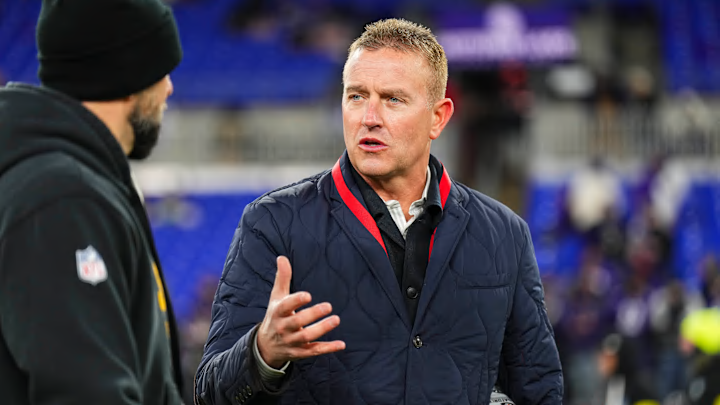Kirk Herbstreit has been tied to college football for as long as most people can remember. The long-time ESPN analyst and commentator has never shied from sharing his thoughts on the sport, nor the spotlight that comes alongside that role.
Most recently, Herbstreit shared an opinion that had college football fans wishing for a return to the "good ole days."
Herbstreit doesn't have faith that teams and locker rooms will remain if college football continues down the path it is currently on. In fact, he believes locker rooms could collapse if nobody can find a way to stabilize the sport.
Is college football on the brink of collapse?
With coaches jumping from one program to another, and players seemingly entering the transfer portal whenever they please, the world of college football has rapidly deteriorated into unorganized chaos.
Of course, as players randomly join teams and randomly depart from them as well, tension builds within locker rooms because there is no genuine sense of camaraderie.
Most recently, the NCAA v. House settlement, which has brought forth yet another change in the form of revenue sharing (with totals reaching upwards of $20.5 million), has once again pushed the sport into a land of the unknown.
Some teams are eking out a few hundred thousand dollars a year to maintain a sub-par roster. Others, like the Texas Longhorns and Ohio State Buckeyes, are shelling out more than $20 million a year from their NIL collectives alone.
There are still walk-on athletes who play for free, but there are also players like Texas quarterback Arch Manning, who are making nearly $7 million a season.
The NCAA isn't like the NFL, where each team has a salary cap. Instead, it's more like the MLB, where there are simply some teams with more money than others (i.e., the New York Yankees will always be able to pay their roster more than the A's).
There is no balance, no stability, and no order to college football right now, and the inequality across the board could quickly lead to college football's demise. Herbstreit is far from incorrect, and the NCAA should seriously listen to what he has to say.
